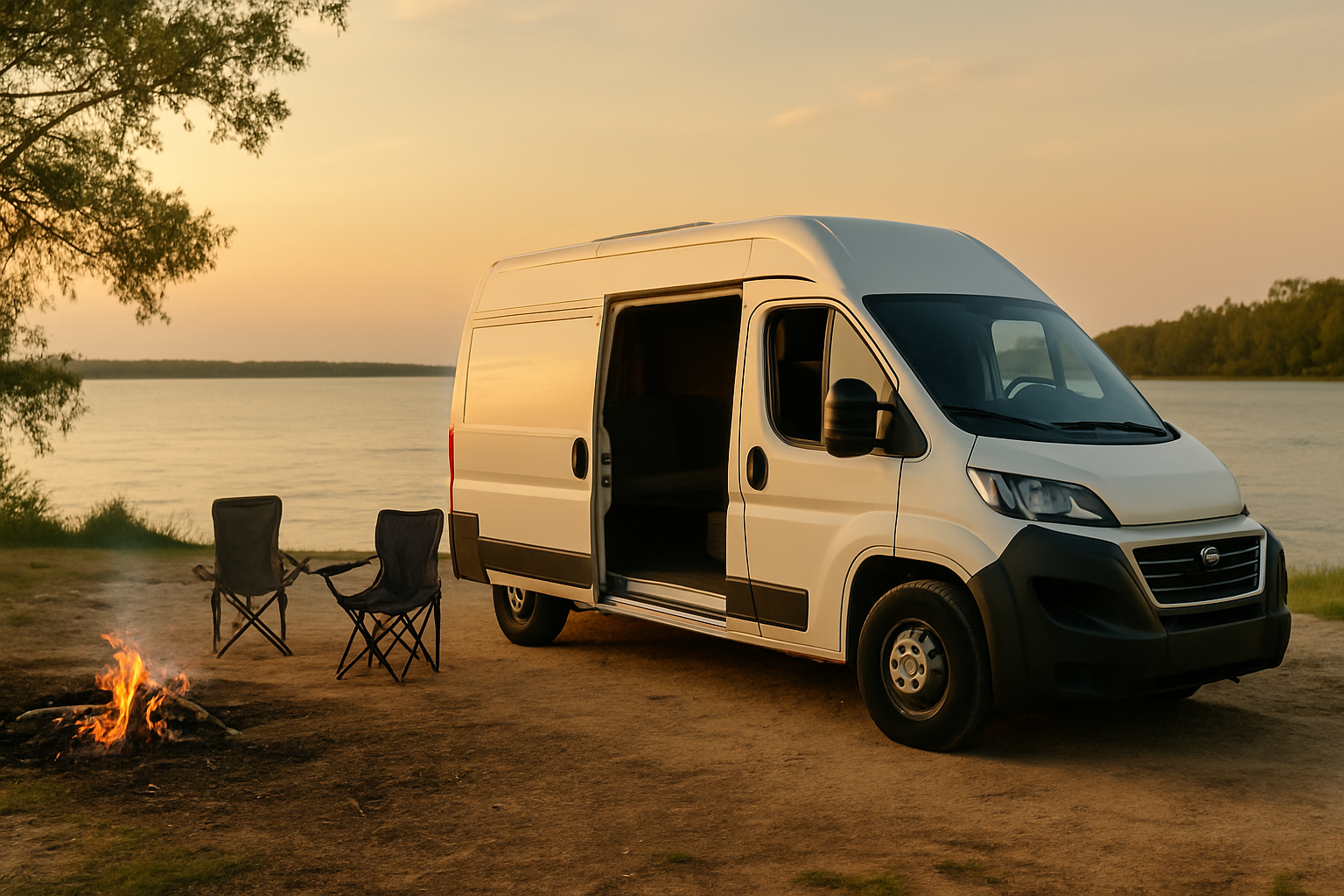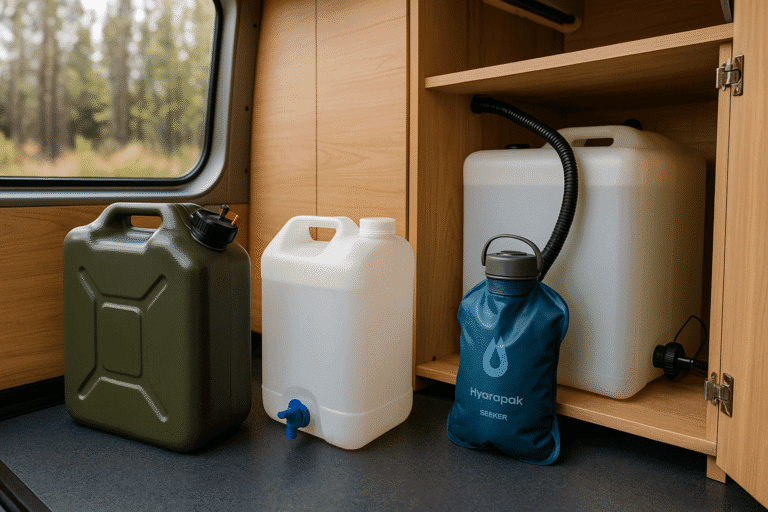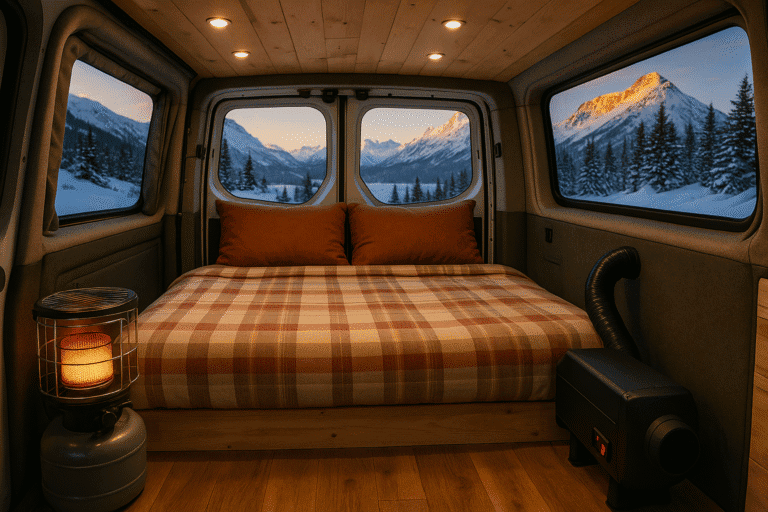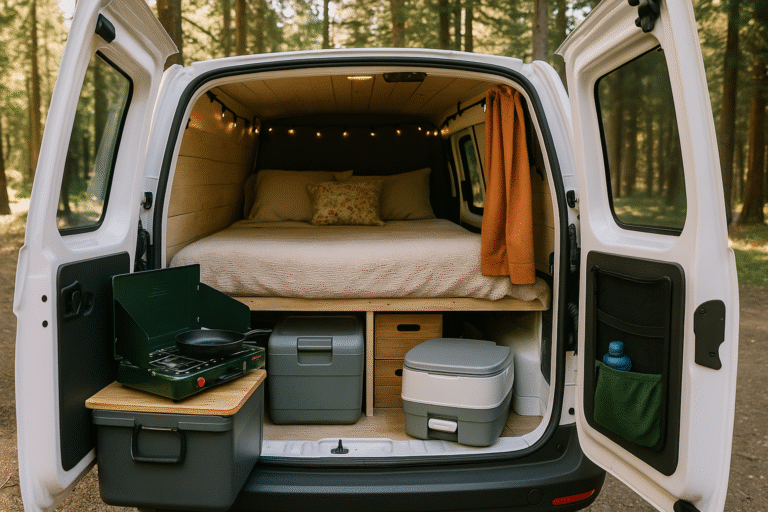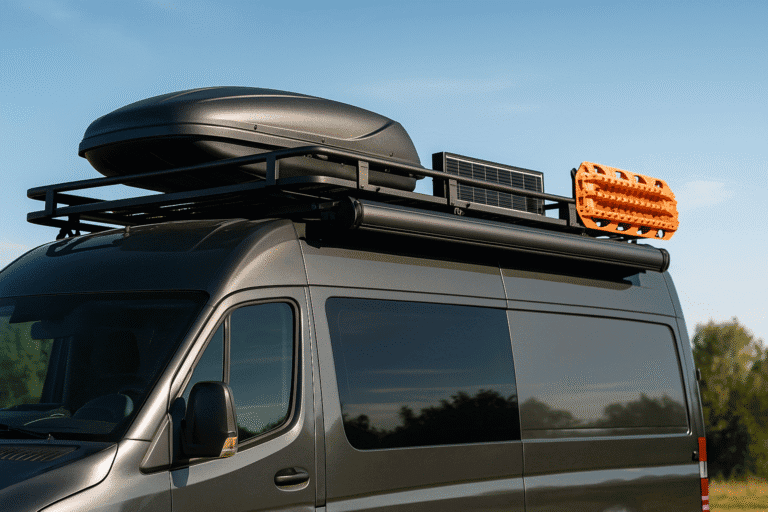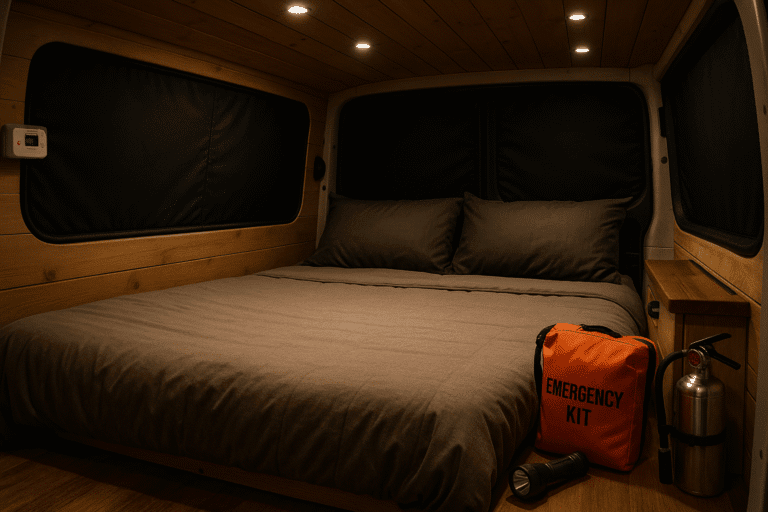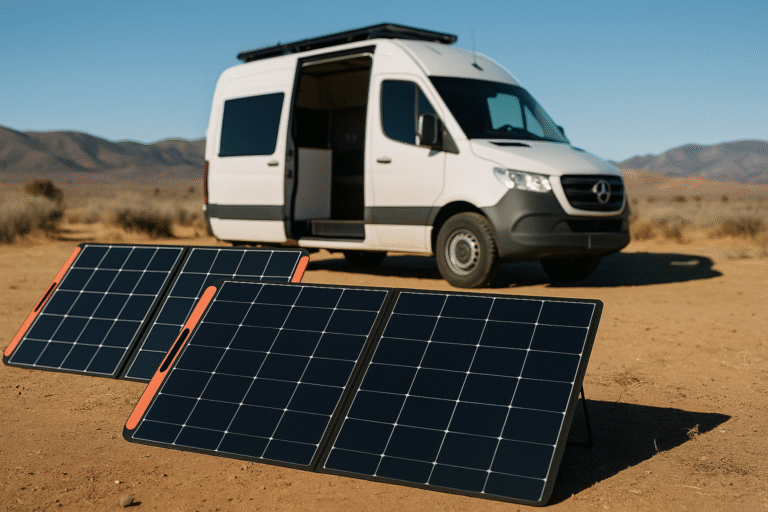Van Life Essentials for Off-Grid Camping: Gear, Food, Power, and Financial Tips
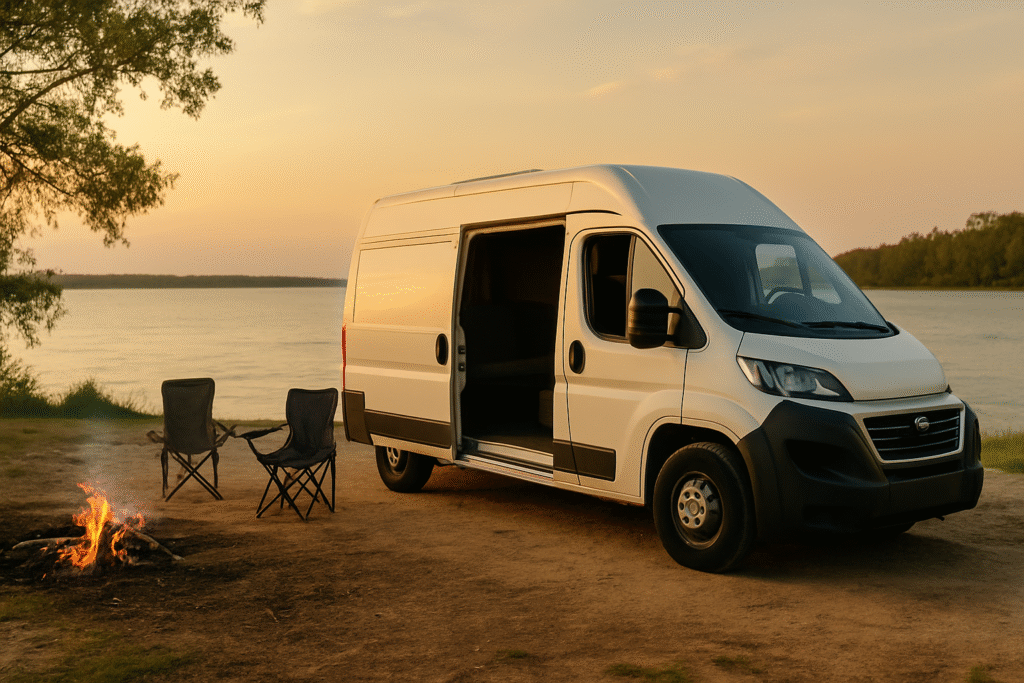
Van life offers the freedom to chase sunsets, wake up to mountain views, and call your own shots. But when you add that freedom off-grid—beyond hookups, towns, and cellular range—that freedom requires more than passion for wanderlust. It requires planning, self-reliance, and a toolbox set for the unexpected.
This handbook takes you through the van life essentials you need for safe, comfortable off-grid camping. From survival equipment and food storage to budgeting tips and solar power, it’s all about designing a system that lets you thrive off the grid.
1. Pack the Right Survival Gear
When you’re way out in the middle of nowhere, miles from the next town, you can’t afford to underplan the basics. A solid survival kit ensures that you’ll be able to handle minor injuries, surprise weather, and mechanical problems without losing your mind. Start by considering this Fire Kit Guide.
Van life essentials in this category include:
- A decent fire starter
- A knife or multi-tool
- A lightweight tarp or emergency blanket
- Reflective triangles or emergency flares
- A small first-aid kit with the essentials like gauze, antiseptics, and meds
2. Food and Cooking Off the Grid
Hookups are not needed in order to eat. Cooking and storing food are van life essentials that require deliberate planning. For effective, field-proven equipment, check this Cooking Gear Guide.
- Use stackable bins for dry storage and rotate your inventory
- Bring a propane stove and a spare fuel canister
- Store 2–3 gallons of clean drinking water per person per day
- Bring high-calorie foods like trail mix, jerky, and nut butter
- Use collapsible cookware in order to reduce space in tight van galleys
Bonus tip: Don’t leave home without a spare means to boil water in the event your stove malfunctions.
3. Power & Electricity Off-Grid
In the absence of campground hookups, your energy system is your survival lifeline. For powering lights, charging phones, or making your refrigerator run cold, managing electricity is high priority.
Power-related van life essentials:
- Foldable solar panels or a rooftop fixed array
- Portapower station (Jackery, Bluetti, or EcoFlow)
- 12V refrigerator or cooler for the perishable items
- LED lanterns and rechargeable headlamps
Pro tip: Monitor battery levels daily. A $15 Bluetooth battery charger will prevent dead batteries in isolated locations.
4. Keeping Money Off the Grid
While you’re off the grid physically, your money needs to stay on autopilot as well. You don’t want to be searching for Wi-Fi to send money or pay bills with no cell signal in the area.
Begin with this investing guide for limited time — ideal for nomads and full-time travelers.
- Budgeting apps such as YNAB, Monarch, or Mint
- Scheduling bill pay and investment contributions
- Maintaining 1–2 months of expenses in liquid savings
- Having a backup card and emergency cash
- Reading Efficient Investing Tips to maintain on-target even off-grid
5. Communication and Contingency Planning
When venturing out of cellular range, communication is not a luxury—it’s a matter of safety. Make sure you have a way to get help and a fall-back plan for the worst-case scenario.
- Use a Garmin inReach or SPOT satellite communicator
- Share a trip itinerary with someone you know
- Carry a paper map and compass as fall-backs
- Pre-load offline maps and weather data before heading out
- Carry an emergency whistle and signal mirror
6. Navigation and Safety
While it might be tempting to just “wing it,” decent navigation and route planning are huge safety factors in off-grid travel.
- Study terrain, elevation, and fuel stops
- Download maps from Gaia GPS or AllTrails
- Don’t use Google Maps by itself—it often overestimates backroads
- Keep tire chains for winter and traction boards for sand-prone zones
For extra peace of mind, bring along a simple OBD2 scanner to scan for engine codes and have an idea of what is amiss before panic sets in.
7. Seasonal Considerations: Summer vs. Winter
Off-grid camping is a completely different animal based on the time of year.
In summer:
- Prioritize ventilation (MaxxAir fans or screened windows)
- Bring extra water and electrolyte packets
- Shade tarps and bug screens are your best friend
In winter:
- Insulate windows with Reflectix or wool blankets
- Bring an alternative heat source like a Mr. Heater Buddy (propane-safe)
- Bring tire chains and watch elevation forecasts to avoid snow traps
8. For First-Timers: What to Expect
If you’re new to off-grid travel, expect a learning curve—but nothing you can’t manage. Start with one or two nights near a small town to get used to your systems.
- Overestimating solar power capacity
- Forgetting to bring spare parts like fuses or fuel filters
- Running out of water
- Not securing items in your rig for rough roads
Final Thoughts
Off-grid van traveling is one of the most rewarding ways to explore the globe—but only if you’re ready for the reality of the freedom. With these van life essentials, you’ll be safe, comfortable, and well-equipped for wherever the adventure leads. Next trip out, don’t forget to review our full Van Life Emergency Kit List so that you’re truly ready.
For tips on cooking while on the trail, take a look at this story!

